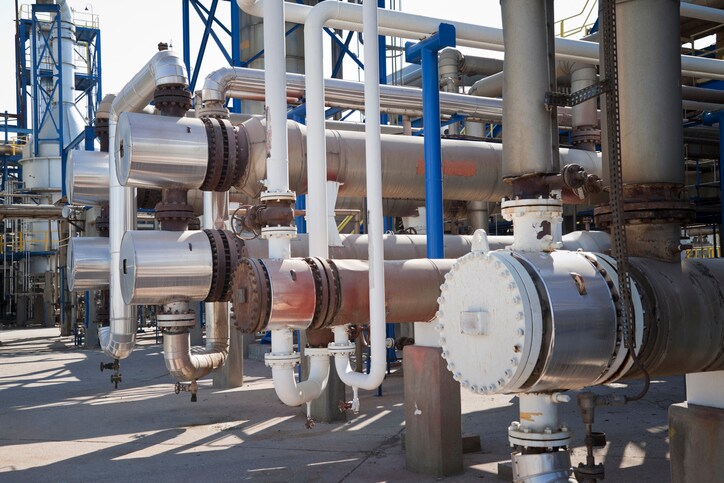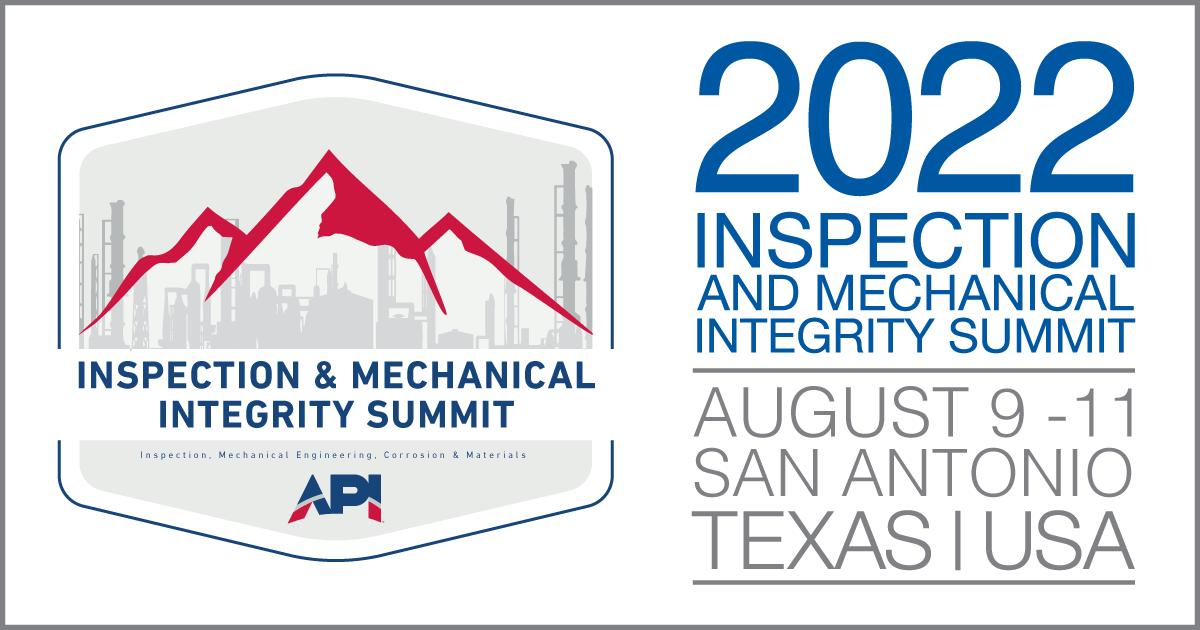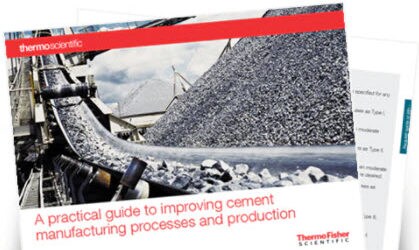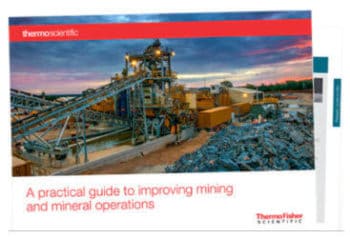 The 2022 API Inspection and Mechanical Integrity Summit and Expo is being held in person this year from August 9-11 in San Antonio, TX. The 3-day conference, developed by inspection experts, promotes itself to be internationally renowned as the best inspection related conference in the petroleum industry.
The 2022 API Inspection and Mechanical Integrity Summit and Expo is being held in person this year from August 9-11 in San Antonio, TX. The 3-day conference, developed by inspection experts, promotes itself to be internationally renowned as the best inspection related conference in the petroleum industry.
Attendees will have to confirm that opinion, but the event is long established and for years has held in-depth training, educational sessions, and focused networking on all inspection-related concerns of the oil, gas and chemical industry. Those concerns address Upstream (drilling, sub sea, production systems, integrity management), midstream (pipelines, terminals), and Downstream (refining, chemical and storage). The various sessions and exhibits provide attendees with an opportunity to learn about new and existing industry codes and standards, hear about emerging trends from experts, and discuss new issues that they face.
Speaking of industry standards, hopefully you have read about the new Federal regulations that add more than 400,000 miles of “gas gathering” pipelines under Federal oversight. According to the PHMSA 06-21 notice, “The rule, initiated over 10 years ago, expands the definition of a ‘regulated’ gas gathering pipeline that is more than 50 years old. It will—for the first time—apply federal pipeline safety regulations to tens of thousands of miles of unregulated gas gathering pipelines. The final rule will—also for the first time—require pipeline operators to report safety information for all gas gathering lines, representing more than 425,000 additional miles covered by Federal reporting requirements.” The agency believes it’s a major step to enhance and modernize pipeline safety and environmental standards.
If you want to discuss these new regulations in more detail, and learn about the latest technologies used to inspect pipelines, stop by booth 405 where we will be demonstrating the latest XRF portable instruments and LIBS analyzers for Positive Material Identification (PMI). X-ray fluorescence spectroscopy is a non-destructive analytical technique used to determine the elemental composition of materials, including the metals from which the pipes and tanks are made. Laser Induced Breakdown Spectroscopy (LIBS) is a form of atomic emission spectroscopy that uses a laser to ablate the surface of a sample to obtain elemental data. This technology helps identify low alloy/ carbon steels and L and H grade stainless steels.
Ask our experts about how carbon content influences the weldability of steel and how by analyzing the materials and understanding chemistry differences through carbon equivalency, it can be determined if the properties of two materials being joined together via filler metal components are compatible – which is key to safety. We’ll also have people on hand to discuss how sulfidation (sulfidic) corrosion affects steel piping and equipment and continues to be a significant cause of leaks in the refining industry, and how residual elements (REs) in carbon steel can contribute to accelerated HF corrosion, primarily chromium, nickel and copper elements.
Flow-accelerated corrosion (FAC), is also a well-known source of problems in fossil-fuel power plants. FAC occurs when carbon steel piping and components are degraded in the presence of flowing water or steam water with low-dissolved oxygen.
If you’re looking for additional technologies, make sure you sign up for one of the show’s technical session and training sessions, including sector tracks addressing:
- Engineering & Asset Integrity Management
- Metallurgy/Corrosion
- NDE Specific Topics
- Drones/UAV
- Inspection/NDE/Monitoring
- Risk Based Inspection
- Storage Tanks
Here’s a link to the program schedule.
For petroleum and petrochemical facilities, the emphasis on safety and accident prevention has never been greater – and the task more demanding with the new rule. The inspection of material integrity of the pipeline is critical to the safety of everyone involved in the industry, and the API Inspection and Mechanical Integrity Summit is a good place to get the latest news – from industry organizations and peers.
If you can’t make it to the event, you can follow @APIGlobal on twitter or visit our website to learn more about Positive Material Identification (PMI) for pipeline integrity.
Show Details:

2022 API Inspection and Mechanical Integrity Summit and Expo
Booth 405
August 9-11, 2022
Grand Hyatt San Antonio
San Antonio, TX






Leave a Reply